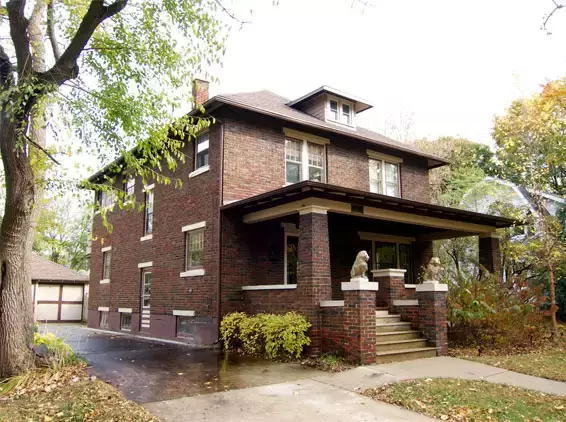2024's Real Estate Shift: How Lowering Interest Rates Impact You

In 2024, the real estate market is poised for some significant changes, especially with the recent lowering of interest rates. This decision by the Federal Reserve will have a considerable impact on buyers, sellers, and the overall market dynamics. In this blog post, we will explore what lowering interest rates means for the real estate market in 2024. For buyers, the lowering of interest rates is excellent news. This decrease in borrowing costs means that homebuyers will be able to secure mortgages at more affordable rates. With lower interest rates, buyers can take advantage of reduced monthly mortgage payments, making homeownership more accessible and affordable. As a result, we can expect to see an increase in the number of potential buyers entering the market. However, this increase in demand from buyers might lead to a more competitive environment for sellers. As more buyers enter the market, the demand for housing will surge. This surge in demand, coupled with the limited inventory available, will likely drive home prices even higher. So, for sellers, this could be an opportune time to list their properties and capitalize on the increased buyer interest, potentially fetching higher prices for their homes. Furthermore, with the increased demand and lower interest rates, it is highly probable that multiple offers will become more prevalent. In a competitive market, where multiple buyers are vying for the same property, sellers may receive multiple offers, often exceeding the asking price. This competitive bidding can lead to a faster sale and potentially higher profits for sellers. As demand continues to rise, it is expected that the inventory of available homes will also increase in 2024. Builders and developers will likely seize the opportunity to construct new properties, aiming to meet the growing demand. However, it is important to note that the increase in inventory may not be sufficient to fully satisfy the high demand, resulting in a market that remains tilted in favor of sellers. While the lowering of interest rates may benefit buyers and sellers, it is important to consider the overall market conditions in 2024. The combination of rising home prices and increased demand could lead to affordability concerns for some buyers. As a potential buyer, it is crucial to carefully assess your financial situation and determine if the current market conditions align with your long-term goals. In summary, the lowering of interest rates in 2024 will have significant implications for the real estate market. Buyers can expect more affordable mortgages, while sellers may capitalize on increased demand and potentially higher selling prices. However, with rising home prices and limited inventory, buyers need to carefully consider their options and affordability. As the market dynamics shift, it is vital for both buyers and sellers to stay informed and work with experienced real estate professionals to navigate these changes successfully.
Read MoreStrategic Home Staging: 8 Proven Ways to Maximize Sale Price

Selling a home is an exciting and intricate process that requires careful preparation. From finding the right real estate agent to determining the perfect timing for selling, every step counts. However, one aspect that shouldn't be overlooked is the art of staging your home. By creating an inviting atmosphere, you can enhance its value and captivate potential buyers. In this blog post, we will explore simple yet effective steps to prepare your home for sale, ensuring you get the price you truly deserve. According to a recent report by the National Association of Realtors (NAR), staging can have a remarkable impact on your home's value. In fact, a well-staged home can increase its value by 1% to 5%! Just imagine, for a home valued at $500,000, effective staging could potentially bring an additional $25,000 to the table. Moreover, the report also revealed that 83% of buyers' agents agree that staging makes it easier for buyers to envision the property as their future home. With such a positive influence, staging can significantly speed up the sale process. Investing in staging not only enhances the aesthetic appeal of your property, but it also boosts its market value and allure to potential buyers. So, let's dive into the world of home staging and discover the secrets to a successful sale! Who Will Do It? When it comes to staging, you have several options to consider. You can choose to stage your home yourself, hire a professional staging company, or ask your Realtor for a referral to a reputable home stager. If you have a knack for interior design, staging the home yourself might be a feasible option. However, keep in mind that this can be a time-consuming endeavor that requires a good understanding of what appeals to potential buyers. Hiring a professional staging company is another option. These companies specialize in boosting a home's appeal and have a wealth of experience in presenting homes in their best light. They often have an inventory of furniture and accessories that they use to enhance the appearance of your home, creating an environment that appeals to a wide range of buyers. Alternatively, your Realtor can usually recommend a good home stager. Many real estate agents have established relationships with staging professionals and can vouch for their quality of work. While hiring a professional can be an additional cost, consider it an investment. A well-staged home can sell faster and at a higher price, potentially offsetting the cost of the staging services. Where To Start ol]:!pt-0 [&>ol]:!pb-0 [&>ul]:!pt-0 [&>ul]:!pb-0" value="1">Declutter and Depersonalize The first step to staging your home is to declutter and depersonalize it. Remove all personal items, such as family photos and memorabilia, and store them away. This will help potential buyers visualize themselves living in the space. Decluttering can also help make your home look more spacious and airy. Donate or sell any items you no longer need or use. ol]:!pt-0 [&>ol]:!pb-0 [&>ul]:!pt-0 [&>ul]:!pb-0" value="2">Paint and Freshen Up Giving your home a fresh coat of paint is an easy and affordable way to update and refresh your home. Choose a neutral color palette to appeal to a wide range of buyers. Also, make sure to touch-up any scratches or blemishes on walls, baseboards, and window sills. Clean or replace any carpets or flooring that are stained or worn. ol]:!pt-0 [&>ol]:!pb-0 [&>ul]:!pt-0 [&>ul]:!pb-0" value="3">Rearrange Furniture and Add Accessories Furniture arrangement plays a significant role in staging your home. Arrange furniture in a way that creates an open flow and highlights the best features of the room, such as a stunning fireplace or a beautiful view. Add accessories such as throw pillows, area rugs, and artwork, and plants to create a warm and inviting atmosphere. ol]:!pt-0 [&>ol]:!pb-0 [&>ul]:!pt-0 [&>ul]:!pb-0" value="4">Give Each Room a Purpose When potential buyers view your home, they will want to imagine how their own furniture would fit in the room. To help them visualize this, give each room a purpose - for example, a bedroom should look like a bedroom and not an office. Remove any furniture that doesn’t align with the intended purpose of the room. ol]:!pt-0 [&>ol]:!pb-0 [&>ul]:!pt-0 [&>ul]:!pb-0" value="5">Lighting Matters Too Lighting is an important factor in staging your home. Natural light will make a room look brighter and more inviting, so open the curtains and blinds to let as much natural light in as possible. If the room doesn’t have enough natural lighting, you can add lamps or overhead lights to brighten up the space even more. ol]:!pt-0 [&>ol]:!pb-0 [&>ul]:!pt-0 [&>ul]:!pb-0" value="6">First Impressions Count When potential buyers view your home for the first time, their initial impression will carry throughout the rest of their visit. Make sure your front entrance looks inviting by sprucing up the door with a fresh coat of paint and adding potted plants or flowers to either side. This will help create a good first impression so potential buyers can imagine themselves living in your home. ol]:!pt-0 [&>ol]:!pb-0 [&>ul]:!pt-0 [&>ul]:!pb-0" value="7">Make the House Sparkle A clean home is crucial when staging your home for sale. Potential buyers want a home that looks move-in ready. Clean every corner of your home, including windows, walls, cupboards, sinks, and bathrooms. Consider hiring a professional cleaner or doing a deep clean yourself before any showings. ol]:!pt-0 [&>ol]:!pb-0 [&>ul]:!pt-0 [&>ul]:!pb-0" value="8">Leave the Property Before Any Showings When your home is being shown to potential buyers, it’s important to give them space to look around and envision themselves living in the home. Leave the property and let your real estate agent do their job. Make sure your pets are also out of the way, so they don't disturb potential buyers. Wrapping Up Staging your home for sale is critical in today’s real estate market. These simple steps can help you prepare your home for sale and make it more attractive to potential buyers. From decluttering and depersonalizing to repainting and rearranging furniture, there’s a lot you can do to increase the value of your home and make it stand out. Remember, the goal is to make potential buyers fall in love with your home and see themselves living in it, so keep it clean, welcoming, and ready to sell. How Much Should I Expect To Spend For Home Staging? According to the National Association of Realtors (NAR), the average cost of home staging is around $1500. Of course, these prices can vary widely depending on the size of your home and the extent of services you choose. It's crucial to keep in mind that although this might seem like a significant expense, staging your home can increase its selling price and reduce the amount of time it sits on the market, making it a worthwhile investment. If you are in Northeast Ohio and you are looking for a recommendation for a home stage, reach out to us! We will send you our top choices.
Read MoreHow to Sell Your Home Without a Realtor: A Step-by-Step Guide to a Successful Sale

Looking to sell your home without a Realtor® in Ohio? Look no further! We get it – the thought of shelling out 6% or even 7% of your home's value to someone else can be disheartening. You've put in the time and effort to build equity in your house. But fear not! In this comprehensive guide, we'll equip you with everything you need to successfully sell your home. Our topics will include reasons to sell FSBO, pricing strategies, effective advertising techniques, navigating contracts, and the final closing process. Let's embark on this exciting and rewarding journey of selling your home together! Your Big WHY To get us started, let's talk about your burning desire to sell on your own! Understanding your motivation sets the stage for the methods you'll employ to make it happen. In this portion, we'll discuss the biggest reasons for selling FSBO, and whether they are worth it or not. We'll discuss motivations like: ol]:!pt-0 [&>ol]:!pb-0 [&>ul]:!pt-0 [&>ul]:!pb-0" value="1">Avoiding a Realtor® commission ol]:!pt-0 [&>ol]:!pb-0 [&>ul]:!pt-0 [&>ul]:!pb-0" value="2">You already have a buyer ol]:!pt-0 [&>ol]:!pb-0 [&>ul]:!pt-0 [&>ul]:!pb-0" value="3">Not in a hurry to sell ol]:!pt-0 [&>ol]:!pb-0 [&>ul]:!pt-0 [&>ul]:!pb-0" value="4">It's a seller's market ol]:!pt-0 [&>ol]:!pb-0 [&>ul]:!pt-0 [&>ul]:!pb-0" value="5">Avoiding an agent Avoiding Realtor Commissions Avoiding Realtor® commissions is the primary reason FSBOs choose to sell on their own. According to NAR, 44% of homeowners opt out of using an agent for this very reason. While it's understandable to want to save on fees, it's important to consider the potential consequences. In 2021, the average sales price of owner-sold homes was 5.5-30% lower compared to those sold with a Realtor®. This can be attributed to various factors, but the concept of supply and demand plays a significant role. We'll delve into this further when discussing home marketing strategies. Another decision to contemplate is whether to accept buyers with or without representation. It's a tough choice: on one hand, you aim to avoid Realtor® fees, but on the other, you limit your pool of potential buyers. NAR reports that 86% of homebuyers used an agent in 2021, significantly reducing your buyer pool. Additionally, if you decide to pay a buyer's agent while selling FSBO, your savings may dwindle to a mere 3% compared to the traditional listing method. It's a gamble to expect the same or higher net proceeds from your home sale. When it comes to sellers opting out of using a real estate agent, one reason stands out: the fear of losing money. While the allure of making more money is tempting, it's the haunting worry of agent fees that truly drives people. But here's the catch: our intense focus on avoiding those fees can blind us to the potential for even greater financial loss. Don't let the pursuit of short-term gains overshadow the long-term consequences. You Already Have a Buyer If you've got a buyer already lined up or you're selling to a family member, you might just skip a few steps and make the process smoother. According to NAR, selling to a friend or family accounts for 29% of sales, while a buyer reaching out to you makes up another 16%. Talk about convenience! There are quite a few perks in this situation. If you currently live in the home, you can wave goodbye to the hassle of countless showings. Plus, you could have the freedom to pick a closing date that suits you better. But here's something to think about: by limiting your potential buyers to just one, you might end up selling below market value. If that's not a problem for you, or if avoiding strangers in your home is more important than making more money, then this approach could be a perfect fit for you. No Rush To Sell Having ample time to sell your home can be a significant advantage. Picture this: you've paid off your mortgage or your property is currently rented out. Now, here's an interesting tidbit: homes listed for sale by owner tend to sell slower compared to those listed by an agent. But hey, there are exceptions to every rule. For instance, if you already have a buyer lined up or if you're open to selling to companies like Redfin or Opendoor. Let's talk benefits. When you have more time, you can set a target price that aligns perfectly with your financial goals and the current market value of your property. No need to rush and accept lower offers—instead, you can patiently wait for a buyer who's willing to meet your desired price. This approach lets you avoid hastily accepting undervalued offers due to time constraints. Keep in mind, though, that the real estate market is always changing, so a bit of flexibility may be required. As a seller, having time on your side not only gives you a sense of control over the selling process but also increases the potential for better financial outcomes. However, it's important to note that in certain situations, the opposite effect may occur. In a high-demand market, some might assume that a house that's been on the market for a while must have issues. This could attract lowball offers and unfavorable terms from opportunistic buyers. All things considered, taking the time to sell your home can offer numerous benefits. It allows you to carefully weigh your options, set a fair price, and increase the likelihood of achieving your financial goals. Just remember to stay mindful of market conditions and be prepared to adapt if necessary. You Want To Avoid Agents Real estate agents, just like professionals in any field, are not immune to criticism. Some sellers find them frustrating due to the commission-based pay structure, which may appear as a significant chunk of the sales price. Communication issues can also arise, with agents not always being readily available or as responsive and proactive as sellers would prefer. In fact, 5% of FSBO sellers opted to sell by owner to avoid dealing with agents altogether. But let's not forget, the real estate industry grapples with public perception issues, with some skeptically viewing agents and likening them to used car salesmen. However, amidst these criticisms, it is crucial to acknowledge the undeniable benefits of working with a real estate agent. The key lies in finding someone you truly connect with. Having an agent on your side, and avoiding negotiating against another who has experience in the industry can create a more positive experience than a negative. Despite all the challenges, a skilled and compatible agent can make a world of difference in your real estate journey. So, don't let the naysayers discourage you—find the right agent and embark on an exciting real estate adventure! Preparing Your Home For Sale Prepare to showcase your home to potential buyers! Here are some essential steps to elevate its appeal and increase its value. These practical tips can easily boost your home sale by 5-10%. Preparing your home may seem overwhelming, but it's a crucial task for sellers. It often feels like the to-do list keeps growing, but it's one of the most cost-effective ways to enhance your home's value. Let's dive in and get started! Start by giving your house a thorough cleaning, leaving no corner untouched. Create an atmosphere that's so fresh and inviting, it'll make potential buyers feel like they've discovered a hidden gem. And hey, don't forget to give some extra tender love and care to those high-traffic areas like the kitchen and bathroom—because first impressions truly are everything. Next, tackle any necessary repairs, big or small. Fixing that leaky tap, replacing cracked tiles, or addressing a faulty doorbell can have a huge impact on how your home is perceived. To get a fresh perspective, invite a friend or family member over to provide objective feedback. Sometimes, we become blind to issues or smells that others can easily spot. Their insights can make a world of difference in presenting your home in the best possible light. Investing in strategic updates can also be beneficial. For instance, a fresh coat of neutral paint can transform a space, but please don't make EVERYTHING gray and white. Lighter colors can make it appear larger and more illuminated. Similarly, updating outdated fixtures and fittings, such as cabinet handles or light switches, can have a surprising impact on the aesthetics of your home. Lastly, declutter to maximize space. A decluttered home looks larger and more inviting. Using less furniture that flows well can make a huge impact. If you have a wall of family photos, take those down. Prospective buyers should be able to envision themselves living in the space, which is easier when it isn't littered with personal items. These preparatory steps, while requiring an upfront investment of time and money, can significantly increase the appeal of your home, leading to quicker sales and a more significant return on investment. Pricing Your Home In the era of the internet, it may seem effortless to determine the right price for your home. With websites like Zillow or Redfin providing instant valuations, what could possibly go wrong? However, the issue lies in the accuracy of these websites, which can often be significantly off the mark. Relying on them blindly could lead to potential financial losses or overpricing your property. Determining the optimal price for your property involves assessing comparable sales. However, it's crucial to focus on homes within your specific market, which may extend beyond your immediate city. Each market possesses its own unique characteristics, necessitating awareness of neighborhoods that align with your property. Begin by conducting a comprehensive search for homes sold in your area over the past six months. Narrow down your search to properties with similar bedroom and bathroom counts, ensuring the square footage falls within a 10% range of your own. If your home features a finished basement, seek out comparable properties with the same attribute. Platforms like Realtor.com or this website can provide valuable data on comparable sales. Examine photos of sold properties to gauge their condition and ensure they align with yours. To ensure an accurate pricing strategy for your home, aim to identify at least three comparable properties. However, keep in mind that relying solely on your neighbor's home as a benchmark may not always be reliable. Even homes built simultaneously in close proximity can vary significantly in terms of sales prices. This is where websites like Zillow face limitations. They lack the ability to assess the unique upgrades and level of care given to each individual home. It's important to remember that the initial listing price of your home may not necessarily reflect its final selling price. To attract more potential buyers and maximize offers, it is crucial to competitively price your home. By doing so, you can foster healthy competition, potentially driving up the final sale price. Once you have a general idea of your home's market value, it is time to do any preliminary paperwork necessary for selling your home. Pre-listing Paperwork and Point-of-Sale Requirements Paperwork can seem intimidating, but with proper research, you'll be well-prepared. Each municipality has its own requirements, so it's crucial to check your county and city websites for specific disclosures and point-of-sale (POS) obligations. For instance, in Ohio, one county may necessitate a well and septic inspection for title transfer, while another may not. Cuyahoga Falls mandates a sewer line disclosure, whereas Kent requires a zoning disclosure. These requirements vary, underscoring the importance of thorough research. One essential disclosure for all homes is the Residential Property Disclosure, required for title transfer if you've lived in the home. If you haven't, you'll need to complete an exemption form, which the buyer must sign. Additionally, if your home was built before 1978, you'll need to fill out a Lead Paint Disclosure. Having these disclosures ready before marketing your property ensures you can provide them to potential buyers, preventing any issues in the future. You may also want to consider getting a pre-listing home inspection. By doing this ahead of time, you can identify any major issues with the property and make necessary repairs before listing it on the market. This will not only save you from potential legal troubles down the line but can also help a buyer eliminate a home inspection contingency in their offer. Advertising The Property When it comes to listing your property, the level of effort you're willing to invest can make all the difference. There are different approaches to consider that can take your listing from ordinary to extraordinary. To begin with, prioritize getting high-quality, professional photographs of your property. In this digital age, the initial encounter anyone has with a home is online. Failing to make a strong impression there will significantly limit the number of potential buyers who proceed to visit the property. You have the option of a simple listing on Zillow with a yard sign, which can be effective. However, if you're looking to maximize exposure and reach a wider audience, it's worth exploring other avenues. Imagine having your property featured on numerous IDX websites, where thousands of home buyers frequent to discover their dream homes. By listing on the MLS, you gain access to these IDX sites, ensuring that your property doesn't go unnoticed. While Zillow is a popular platform, relying solely on it may cause you to miss out on potential buyers who discover properties through other channels. If you decide not to engage an agent, you can manually list your property on various IDXs. However, this can quickly become repetitive and time-consuming. It's important to consider that selling exclusively on Zillow is still a viable option. However, it may limit your ability to generate high demand through alternative platforms, potentially impacting the optimal price you can achieve for your home. At Kaizenohio.com, we consistently send out homes to hundreds of potential buyers. If you list FSBO, your home won't end up on a website like this. It is important to note that you can also get your home listed on the MLS through a limited listing agreement with an agent. This means you still handle the listing as a FSBO, but pay the agent a fee to put it on the MLS. If you go this route, you'll also want to decide what you would offer a buyer's agent so that it can be listed without one trying to negotiate something higher when approaching you. If you're interested in this method, contact us here. There are various methods to advertise your property effectively. While some are simpler than others, let's begin by acknowledging the significant decline in the number of FSBOs over the past four decades (nearly 33%). Previously, listing your home was as straightforward as placing an ad in the newspaper. However, with the advent of technology, countless avenues have emerged to connect your home with potential buyers, many of which require research for successful implementation. A fantastic and easy starting point is promoting your home on social media platforms. Share a couple of photos on your Facebook page and kindly request friends and family to spread the word. Additionally, explore off-market home sale groups to expand your reach. You can also create a listing on Facebook Marketplace, although it's important to be prepared for time-wasters. Another impactful approach is to send out mailers or personally engage with your neighbors to discuss the availability of your home. If your neighborhood has a dedicated Facebook group, consider posting your listing there as well. While placing an ad in the newspaper remains a viable option, it's worth noting that less than 1% of people find their homes through print media. Consequently, it may not be the most efficient use of your time to pursue this avenue. Numerous other methods exist to broadcast your home, but if you're only selling one property, it may not be worth investing the time to learn and utilize them effectively. Showing Your Home When showcasing your home to strangers, it's crucial to pay attention to some important details. Firstly, consider requesting a pre-approval letter from any buyer without an agent, which should be emailed to you before the showing. This helps filter out potential tire kickers who aren't genuinely interested in buying a home. By knowing who's coming in advance, you can avoid wasting time. Before any showings, set the stage by opening the curtains, turning on all the lights, lighting a candle, and doing a spot check for cleanliness. If you have pets, it's advisable to keep them in a crate to prevent any mishaps. If the buyer is accompanied by an agent, you might want to consider allowing them to explore the house on their own. Speaking from personal experience, it can be frustrating not being able to speak your mind when the opposing party is always present. Moreover, this approach can make buyers who are used to private showings feel more comfortable. The goal is to create a positive experience for potential buyers without causing any unnecessary discomfort. This is not to imply that you're not a pleasant person; it simply acknowledges the emotional and financial investment you have in the home. Consider hosting an open house event. However, keep in mind that this may conflict with the practice of having a pre-approval and allowing strangers to freely roam your home without your presence. Ideally, an open house serves as an opportunity to showcase your home to neighbors, as they may have acquaintances who they would like to see become their future neighbors. Finally, make an effort to avoid refusing any showings. Your availability may not align with others'. If their schedule doesn't work for you, you might miss the opportunity to showcase the home again. Contracts/Negotiations Handling contracts and paperwork without a Realtor® is possible, but it's crucial to thoroughly read any purchase agreement to fully comprehend the terms. Keep in mind that different brokerages have different purchase agreements, so ensure that everything agreed upon is documented. Both parties should sign the purchase agreement and all other relevant documents and disclosures. If the buyer doesn't have a real estate agent, ensure that the documents are sent to their lender. Additionally, initiating title work is essential in Ohio, as the state utilizes a title company for handling changes in ownership. This process involves conducting a survey and obtaining a payoff from your mortgage company if you have a loan. If the buyer requests an inspection, the next step would be to schedule one. In such cases, it is important to have a release of inspection contingency document ready, especially if repairs are being requested. Ensuring that this contingency is waived will help prevent any delays with their loan. In case any changes need to be made to the contract, either fill out an addendum or clearly note the changes on the contract with initials from both parties at every modification. Negotiating the sale of your home can involve various factors, such as price adjustments, credits towards closing costs, and repair requests. Having an agent can greatly assist in understanding what negotiation requests are reasonable and what are not. It's worth noting that many buyers and agents may assume that a For Sale By Owner (FSBO) transaction would be easier to negotiate. However, statistics show that FSBO homes tend to pay higher amounts in both seller concessions and repairs. It's important to keep in mind that every home sale is unique, and providing more specific information on negotiations without being directly involved or writing a book solely on negotiations is challenging. Closing on the House Once all negotiations are done and the contract is accepted, it's time for the grand finale - closing! But before that, the buyer gets a chance to do a final walk-through a couple of days prior to ensure everything's in order - just a little extra peace of mind. In Ohio, a title company handles the closing process. You have the choice to sign there or have a notary come to you. Just remember to bring your identification forms and any necessary paperwork requested by the title company. Let's wrap this up smoothly! Final Comments Regarding FSBO When selling a house without an agent, it's important to be aware of the pros and cons. On one hand, you don't have to worry about paying an agent's commission or having to answer their calls all the time. You're also able to control the sale of your home from start to finish. On the other hand, you may lack in resources, market knowledge, and even negotiation skills (no offense) At the end of the day, it's important to consider your own personal circumstances as well as the local real estate market when deciding if selling a house without a realtor is right for you. Selling without an agent is not for everyone. You should be prepared to take on certain tasks and responsibilities that would typically fall on the shoulders of an agent. For instance, you'll need to handle all the paperwork that's required when selling a house, such as filling out forms correctly and filing Helpful Statistics Having the right motivation for handling an entire deal without an agent is important. Here are a couple of quick statistics to consider before handling the process on your own: ol]:!pt-0 [&>ol]:!pb-0 [&>ul]:!pt-0 [&>ul]:!pb-0" value="1">FSBOs accounted for 10% of home sales in 2021. The typical FSBO home sold for $225,000 compared to $330,000 for agent-assisted home sales. ol]:!pt-0 [&>ol]:!pb-0 [&>ul]:!pt-0 [&>ul]:!pb-0" value="2">Where buyers found the home they purchased: ol]:!pt-0 [&>ol]:!pb-0 [&>ul]:!pt-0 [&>ul]:!pb-0 list-none" value="3"> ol]:!pt-0 [&>ol]:!pb-0 [&>ul]:!pt-0 [&>ul]:!pb-0" value="1">Internet: 51% ol]:!pt-0 [&>ol]:!pb-0 [&>ul]:!pt-0 [&>ul]:!pb-0" value="2">Real estate agent: 29% ol]:!pt-0 [&>ol]:!pb-0 [&>ul]:!pt-0 [&>ul]:!pb-0" value="3">Yard sign/open house sign: 4% ol]:!pt-0 [&>ol]:!pb-0 [&>ul]:!pt-0 [&>ul]:!pb-0" value="4">Friend, relative, or neighbor: 10% ol]:!pt-0 [&>ol]:!pb-0 [&>ul]:!pt-0 [&>ul]:!pb-0" value="5">Home builder or their agent: 1% ol]:!pt-0 [&>ol]:!pb-0 [&>ul]:!pt-0 [&>ul]:!pb-0" value="6">Directly from sellers/Knew the sellers: 5% ol]:!pt-0 [&>ol]:!pb-0 [&>ul]:!pt-0 [&>ul]:!pb-0" value="7">Print newspaper advertisement: less than 1% ol]:!pt-0 [&>ol]:!pb-0 [&>ul]:!pt-0 [&>ul]:!pb-0" value="3">FSBO methods used to market home: ol]:!pt-0 [&>ol]:!pb-0 [&>ul]:!pt-0 [&>ul]:!pb-0 list-none" value="4"> ol]:!pt-0 [&>ol]:!pb-0 [&>ul]:!pt-0 [&>ul]:!pb-0" value="1">Friends, relatives, or neighbors: 28% ol]:!pt-0 [&>ol]:!pb-0 [&>ul]:!pt-0 [&>ul]:!pb-0" value="2">Yard sign: 20% ol]:!pt-0 [&>ol]:!pb-0 [&>ul]:!pt-0 [&>ul]:!pb-0" value="3">Third party aggregator: 19% ol]:!pt-0 [&>ol]:!pb-0 [&>ul]:!pt-0 [&>ul]:!pb-0" value="4">Social networking websites: 17% ol]:!pt-0 [&>ol]:!pb-0 [&>ul]:!pt-0 [&>ul]:!pb-0" value="5">For-sale-by-owner website: 3% ol]:!pt-0 [&>ol]:!pb-0 [&>ul]:!pt-0 [&>ul]:!pb-0" value="6">Open house: 3% ol]:!pt-0 [&>ol]:!pb-0 [&>ul]:!pt-0 [&>ul]:!pb-0" value="7">Online classified ads: 3% ol]:!pt-0 [&>ol]:!pb-0 [&>ul]:!pt-0 [&>ul]:!pb-0" value="8">Multiple Listing Service (MLS) Website: 3% ol]:!pt-0 [&>ol]:!pb-0 [&>ul]:!pt-0 [&>ul]:!pb-0" value="9">Other website with real estate listings: 1% ol]:!pt-0 [&>ol]:!pb-0 [&>ul]:!pt-0 [&>ul]:!pb-0" value="10">Video hosting websites: 1% ol]:!pt-0 [&>ol]:!pb-0 [&>ul]:!pt-0 [&>ul]:!pb-0" value="4">Most difficult tasks for FSBO sellers: ol]:!pt-0 [&>ol]:!pb-0 [&>ul]:!pt-0 [&>ul]:!pb-0 list-none" value="5"> ol]:!pt-0 [&>ol]:!pb-0 [&>ul]:!pt-0 [&>ul]:!pb-0" value="1">Preparing/fixing up home for sale: 6% ol]:!pt-0 [&>ol]:!pb-0 [&>ul]:!pt-0 [&>ul]:!pb-0" value="2">Getting the right price: 16% ol]:!pt-0 [&>ol]:!pb-0 [&>ul]:!pt-0 [&>ul]:!pb-0" value="3">Understanding and performing paperwork: 13% ol]:!pt-0 [&>ol]:!pb-0 [&>ul]:!pt-0 [&>ul]:!pb-0" value="4">Selling within the planned length of time: 10% ol]:!pt-0 [&>ol]:!pb-0 [&>ul]:!pt-0 [&>ul]:!pb-0" value="5">Having enough time to devote to all aspects of the sale: 1% ol]:!pt-0 [&>ol]:!pb-0 [&>ul]:!pt-0 [&>ul]:!pb-0" value="6">Attracting potential buyers: 1% ol]:!pt-0 [&>ol]:!pb-0 [&>ul]:!pt-0 [&>ul]:!pb-0" value="7">Helping buyers obtain financing: 1% (Study: www.NAR.Realtor) ol]:!pt-0 [&>ol]:!pb-0 [&>ul]:!pt-0 [&>ul]:!pb-0" value="1">70% of buyers said they would or have bought a FSBO home. ol]:!pt-0 [&>ol]:!pb-0 [&>ul]:!pt-0 [&>ul]:!pb-0" value="2">But 19% said they didn’t know where to find FSBO listings. ol]:!pt-0 [&>ol]:!pb-0 [&>ul]:!pt-0 [&>ul]:!pb-0" value="3">37% of buyers said online advertising was the best way to find a home (Study: 2022 Clever Real Estate Survey) Sources https://www.nar.realtor/research-and-statistics/quick-real-estate-statistics https://www.realestatewitch.com/fsbo-statistics/ https://www.nar.realtor/working-with-fsbos https://www.moving.com/tips/when-selling-house-by-owner-actually-makes-sense/
Read MoreHow To Buy and Sell a Home Simultaneously

Buying and selling a home at the same time can feel overwhelming, right? It requires careful coordination and planning. But hey, don't worry! With proper preparation and knowledge, you can make this complex process smooth and successful. In this comprehensive blog post, we'll explore some practical tips and valuable tricks to help both buyers and sellers navigate the dynamic real estate market while efficiently managing their relocation. So whether you're searching for your dream home or looking to maximize the value of your property, we've got you covered! These insights will empower you to make informed decisions and achieve your goals with confidence. Ready to optimize your real estate journey? Let's dive in! Understanding whether you're in a buyer's or a seller's market is an essential first step. This type of market condition is determined by the supply and demand of homes. In a buyer's market, there are more homes for sale than there are buyers, giving buyers more power during negotiation. On the other hand, a seller's market occurs when there are more buyers than homes for sale, putting sellers in a stronger negotiation position. By recognizing these market dynamics, you can plan your strategy more effectively and set realistic expectations for both buying and selling outcomes. Determining whether you're in a buyer's or seller's market can be a crucial task. You've probably heard that it's currently a seller's market, but what does that truly mean? The key lies in gauging the depth of the market by assessing the number of months' worth of inventory available. Let's break it down: if there are 30 homes for sale in your market, with an average of 15 homes sold per month over the past six months, you have two months of inventory. Generally, a balanced market falls within the 5-7 months range. Interestingly, at the time of writing this blog post, most markets in Ohio had less than two months of inventory. To put that into perspective, back in 2009, we had nearly 12 months of inventory. In the current seller's market, let's focus on this aspect. In this type of market, it's expected that sellers will receive multiple offers and homes will sell above the listing price if they are priced and marketed correctly. When you're selling in a seller's market, you have the advantage, but when it comes to buying your next home, you lose that advantage. In this situation, it's crucial to present a strong offer. You'll be competing with other buyers, and including a contingency to sell your home first could be the deciding factor that causes you to lose out on a house. In this scenario, it's recommended to list your house first. You can include certain requirements or contingencies that allow you to have time to find your next home: ol]:!pt-0 [&>ol]:!pb-0 [&>ul]:!pt-0 [&>ul]:!pb-0" value="1">List your home with the contingency that you need to find a home to move into. This allows you to accept an offer on the selling side and use that accepted offer to your advantage when making an offer on another home. You still have a home sale contingency in your written offer, but the seller can be assured that you already have a buyer lined up as soon as you find a home. If you don't find a home, then you don't sell. Many buyers will be willing to give you that time just to secure the house. ol]:!pt-0 [&>ol]:!pb-0 [&>ul]:!pt-0 [&>ul]:!pb-0" value="2">Sell your home with a specified amount of time to remain in possession of the property. If timed correctly, this removes your home sale contingency when buying. Your home sale closes, you receive the funds, but you can continue living in the house for an agreed-upon period while you search for another home. The disadvantage here is that you may feel a bit rushed to find your next home, but it does provide you with more time than usual. ol]:!pt-0 [&>ol]:!pb-0 [&>ul]:!pt-0 [&>ul]:!pb-0" value="3">Sell your home with an option to rent it back from the buyer for a specific period of time. This also removes the home sale contingency and gives you more time to find your next home. The rental rate is usually based on the buyer's mortgage loan costs. Depending on the terms of the rent-back period, you may need to obtain rental insurance as well. ol]:!pt-0 [&>ol]:!pb-0 [&>ul]:!pt-0 [&>ul]:!pb-0" value="4">Consider utilizing a service like homeward.com. This service allows you to purchase your desired home and sell your current home later. They provide funding for your purchase (for a fee) and then allow you to sell your home directly to them or list it on the market. ol]:!pt-0 [&>ol]:!pb-0 [&>ul]:!pt-0 [&>ul]:!pb-0" value="5">Another option is to explore a bridge loan. A bridge loan functions similarly to homeward.com, providing short-term financing until you sell your home and secure your mortgage. ol]:!pt-0 [&>ol]:!pb-0 [&>ul]:!pt-0 [&>ul]:!pb-0" value="6">If you have the means to do so, you can also choose to buy your next home first and list your current home afterwards. This means you would need to qualify for both mortgages and could potentially be responsible for paying on two mortgages if your home doesn't sell quickly. Each of these options has its own advantages and disadvantages, but they all provide an opportunity to transition into your next home without having to rent or rely on the hospitality of friends or family during the interim period. In a buyer's market, homes tend to stay on the market for longer, providing buyers with more negotiating power. They can expect discounts from the list price of properties that pique their interest. If you're selling your home in this scenario, it's crucial to set a competitive list price that appeals to the right buyers. As a buyer, you can take advantage of these market conditions to potentially secure reduced prices. Conversely, in a seller's market, you should approach your transaction as a buyer first. Although you should still list your home before buying, finding a home becomes easier. You can even make an offer with the contingency that your home sells first. While this may impact the value of your offer, you may not face competition for the desired home. Considering the current low inventory, whether rates rise or fall, the market will likely remain a seller's market for some time. The aging baby boomer population and the need for downsizing, along with millennials seeking starter homes, create a significant demand for affordable housing. However, constructing starter homes is no longer cost-efficient. Consequently, we anticipate a rise in condo construction to accommodate this demand. If you fall into this category of buyer, you may want to explore condo options. Regardless of whether you opt for a simultaneous home sale and purchase or a different type of transaction, conducting thorough research and meticulous preparation are vital for ensuring a seamless transition into your new home. By dedicating time to careful planning and considering every aspect, from financing options to property inspections, you can make the entire process much more manageable and increase the likelihood of a successful outcome.
Read More
Categories
Recent Posts











